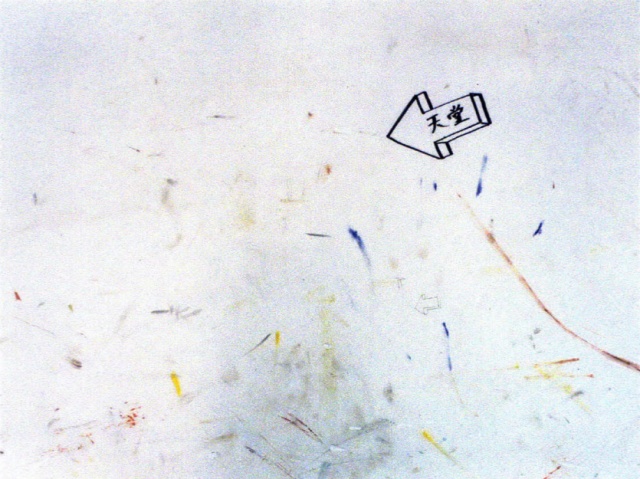Winnie Won Yin Wong: After the Copy: Creativity, Originality and the Labor of Appropriation: Dafen Village, Shenzhen, China, 1989-2010 (2010)
Filed under thesis | Tags: · 1990s, 2000s, appropriation, art, authorship, china, conceptual art, contemporary art, creativity, labour, painting

“Since 1989, Dafen village in Shenzhen, China, has supplied millions of hand-painted oil-on-canvas paintings each year to global consumer markets. Accused of copying Western masterpieces, and spurred by the Chinese party-state’s creative industry policies, Dafen village’s eight thousand painters have been striving to become original artists. Simultaneously, conceptualist artists from outside Dafen village have engaged with the creative alienation of Dafen painters, by purchasing their labor in works of appropriation art. This study examines the discourses of creativity, originality, and appropriation that frame Dafen’s painting production, and sets them against an ethnography of flexible work in the South Chinese painting trade. It explores the myriad ways in which Dafen village lends itself to intellectual and aesthetic explorations of the separation of painting labor from conceptual labor, as enacted in both modernist and postmodernist framings of artistic authorship.
The study begins by charting the historical categorization of Chinese ‘export painting’ and the emergence of the ‘painting factory’ as a cultural imaginary of Sino-Western trade. It then examines the political stakes of ‘creativity’ as constructed in Dafen television propaganda made by the national and local party-state. Then, turning to a single Vincent van Gogh-specialty workshop and the transnational wholesale and retail of van Gogh trade paintings, it theorizes the relationship of ‘craft’ to modernist authorship and signature style. Finally, it scrutinizes cosmopolitan conceptual artists’ and designers’ collaborations with Dafen painters, exploring the ethical and aesthetic terms of universal creativity raised by the Dafen ‘readymade’. Establishing continuities between Dafen production and the making of ‘high’ art while challenging their putative antinomies, this study shows how the ideology of individual creativity undergirds the cultural industry policies of the local party-state, the consumer demand for authentic craft, and the appropriation of labor in contemporary art.” (Abstract)
Thesis, Ph. D. in History, Theory, and Criticism of Art and Architecture
Dept. of Architecture, Massachusetts Institute of Technology, 2010
Supervisor: Caroline A. Jones
410 pages
Simon Yuill: Stackwalker: Interviews 2008–2010 (2012)
Filed under book | Tags: · labour, land, migration, mobility, work

Documentation from Simon Yuill’s Stackwalker project, a parallel study made from audio interviews relating to crofting communities in the West of Scotland and migrant workers in fishing and food production in the North East of Scotland.
The project reflects upon issues of spatial agency (land use, occupancy, and mobility) and forms of communal organisation that have developed within these communities. These are set against processes of archiving and documentation in terms of historical and legal practices. The book collates the transcribed interviews and provides an introductory essay setting them in context.
This artist’s book follows the exhibition, Fields, Factories and Workshops at the Centre for Contemporary Arts, Glasgow, 7 August – 18 September 2010.
English language text with Gaelic, Polish, Russian, Latvian and Lithuanian sections.
Publisher Centre for Contemporary Arts, Glasgow, 2012
GNU Free Documentation License
ISBN 9780956271389
494 pages
PDF
View online (HTML)
Matthew Fuller, Andrew Goffey: Evil Media (2012)
Filed under book | Tags: · algorithm, art, artificial intelligence, business, code, computing, data, database, event, governance, information, interaction, interface, knowledge, labour, language, machine, management, market, media, media theory, memory, military, networks, philosophy, political theory, politics, power, programming, software

“Evil Media develops a philosophy of media power that extends the concept of media beyond its tried and trusted use in the games of meaning, symbolism, and truth. It addresses the gray zones in which media exist as corporate work systems, algorithms and data structures, twenty-first century self-improvement manuals, and pharmaceutical techniques. Evil Media invites the reader to explore and understand the abstract infrastructure of the present day. From search engines to flirting strategies, from the value of institutional stupidity to the malicious minutiae of databases, this book shows how the devil is in the details.
The title takes the imperative “Don’t be evil” and asks, what would be done any differently in contemporary computational and networked media were that maxim reversed.
Media here are about much more and much less than symbols, stories, information, or communication: media do things. They incite and provoke, twist and bend, leak and manage. In a series of provocative stratagems designed to be used, Evil Media sets its reader an ethical challenge: either remain a transparent intermediary in the networks and chains of communicative power or become oneself an active, transformative medium.”
Publisher MIT Press, 2012
ISBN 0262304406, 9780262304405
235 pages
Review: Nicholas Holm (Media Int’l AU, 2013), Neural (2013).
Evil media on Monoskop wiki
PDF (updated on 2024-4-13)
HTML (added on 2015-8-28)
See also YoHa, et al., Evil Media Distribution Centre, 2013.
Comments (2)
